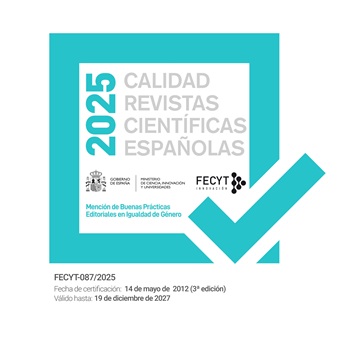AUDITORÍAS AMBIENTALES DE DESTINOS TURÍSTICOS. DIAGNOSIS TERRITORIAL PARA EL DESARROLLO DE AGENDAS 21 LOCALES
Abstract
The socioenvironmental crisis is urging to act locally to limit human activities in terms of sustainability, or at least to mitigate its worst effects. According to this, the Agenda 21 —main product of the UNEP Rio’s Summit in 1992— was adapted to the European urban areas’ needs in the European Conference on Sustainable Cities & Towns which was hold in Aalborg, Denmark on 27 May 1994. Notwithstanding, the same year the local council of Calvià (Majorca) established a pioneer target with the development of an Local Agenda 21, which was moreover specially adapted to the diagnosis and to the intervention on declining intensive tourist resorts. The aims of this strategy are co-ordinating all the managing subjects of the local administrations and favouring citizens participation in the definition of their territorial, social and environmental project. This paper analyse the aims and the results of the Calvia’s project, further to another Balearic project, called ECOTUR and managed by the Regional Government, and the Barcelona’s Provincial Government initiative, dealing with the local authorities of its jurisdiction. Our main aim is to advance in the knowledge and the application of this regional planning tool, specially adapted to tourist destinations, on the case of the Balearic Islands.Downloads
-
Abstract973
-
PDF (Español (España))488
Las obras que se publican en esta revista están sujetas a los siguientes términos:
1. El Servicio de Publicaciones de la Universidad de Murcia (la editorial) conserva los derechos patrimoniales (copyright) de las obras publicadas, y favorece y permite la reutilización de las mismas bajo la licencia de uso indicada en el punto 2.
2. Las obras se publican en la edición electrónica de la revista bajo una licencia Creative Commons Reconocimiento-NoComercial-SinObraDerivada 3.0 España (texto legal). Se pueden copiar, usar, difundir, transmitir y exponer públicamente, siempre que: i) se cite la autoría y la fuente original de su publicación (revista, editorial y URL de la obra); ii) no se usen para fines comerciales; iii) se mencione la existencia y especificaciones de esta licencia de uso.
3. Condiciones de auto-archivo. Se permite y se anima a los autores a difundir electrónicamente las versiones pre-print (versión antes de ser evaluada) y/o post-print (versión evaluada y aceptada para su publicación) de sus obras antes de su publicación, ya que favorece su circulación y difusión más temprana y con ello un posible aumento en su citación y alcance entre la comunidad académica. Color RoMEO: verde.




_.jpg)








